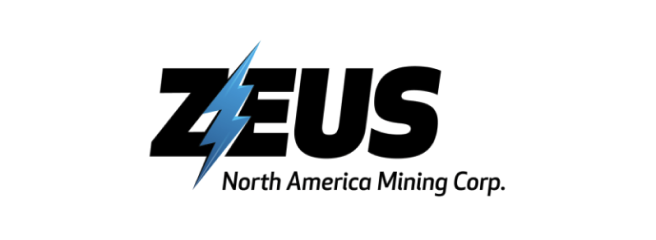Irvine, CA – Identillect Technologies Corp. (TSX-V:ID | OTCQB: IDTLF | Frankfurt: 8ID) (the “Company” or “Identillect”) announces the Company is positioned to handle the pending demand from the new European data handling regulation called the General Data Protection Regulation (GDPR). This regulation is pervasive across all of Europe and affects businesses in the United States and Canada doing business in Europe. The regulation becomes active in May of 2018 and is one of the strictest data handling regulations ever written requiring companies to protect customer information.
Identillect’s secure email encryption platform, Delivery TrustTM, protects information in transit and at rest from cyber security threats. Email security is a vital component to complying with these changing regulations. Canada has also proposed reforms to their current data handling regulation, The Personal Information Protection and Electronic Documents Act (PIPEDA).
Among the strict rules under consideration – companies will be required, for the first time, to report all cyber security breaches to federal authorities, assess potential harm to their networks, and notify all affected customers or employees when their personal information has been hacked.
The proposed changes to PIPEDA are modeled after GDPR, and will allow Canadian’s to continue business activities across Europe without interruption, and advance the data handling regulations across Canada. The purpose of the GDPR is to give European Union (EU) citizens greater control over how their personal data is collected, protected, and used. Under the GDPR rules, companies which suffer a data breach, thereby exposing customer data to cyber criminals, face stiff fines as well as strict new reporting rules. The proposed new rules for Canadian businesses are just as strict, imposing penalties of up to $100,000 on companies which suffer a data breach.
“Tough new laws forcing companies to protect customer data are being implemented in Europe, Australia, and other countries, not just Canada,” said Todd Sexton, CEO of Identillect Technologies. “Even though Canada’s mandates are in the proposal stage now, government and cyber security experts agree they’re likely to become law, so businesses should consider implementing layered security measures on their networks now to make sure they’re compliant later.”
Email is one of the major attack vectors used by cybercriminals to breach enterprises. Sexton encourages companies to implement email encryption, which complies with GDPR rules and combats ransomware, phishing, and other email-borne cyber-attacks which have become an epidemic affecting a growing number of businesses worldwide.
How big is cybercrime in Canada? Recent studies found Canada had the third largest number of data breaches worldwide in 2017, behind the United States and the United Kingdom. Cyber-attacks successfully breached business networks across Canada from January to June this year exposing an estimated 2.1 million records. The cost to Canadian companies which suffer breaches is growing as well. In 2016, the average cost per compromised record in Canada was $211, while the average cost per Canadian data breach was almost $5 million.
“Canadian businesses use dynamic tools like Delivery Trust because they want to minimize their financial risk and protect customer data, but soon they’ll have another reason – avoiding stiff fines and the embarrassment of being data breach victims once the rules become law,” said Sexton.
About the Email Security Industry
As the growing threat of cyber-attacks fuels the growth of the cyber security industry, the email encryption market will grow as well, estimated to be worth more than $4.21 Billion USD by 2020. Email-borne cyber-attacks are the second most common type of cyber security breach according to the Identity Theft Center with the average cost of a data breach now estimated at more than $3.62 million.
Despite the growing threat to businesses, nearly 60% of U.S. companies do not encrypt their emails. As the number of attacks increases, this demand for a reliable email encryption provider will grow, with an estimated 4 billion individuals’ online requiring security by 2020.
About Identillect
Identillect Technologies is the leading provider of email encryption service Delivery Trust™, empowering enterprises of all sizes to protect their business and their client’s critical information against cyber security attacks.
Delivery Trust™ is an award -winning, multi-platform plug-in, which gives users complete control of their emails, for one low price. One simple integration complies with all regulations and most importantly provides peace of mind.
For more information, or your free trial, please visit www.identillect.com
On Behalf of the Board of Directors of:
IDENTILLECT TECHNOLOGIES CORP.
Todd Sexton
Chief Executive Officer
Identillect Technologies Corp.
Tel: (949) 468-7878
Email: todd.sexton@identillect.com
Investor Relations:
Arlen Hansen
Kin Communications
1-866-684-6730
id@kincommunications.com
Neither TSX Venture Exchange nor its Regulation Services Provider (as that term is defined in policies of the TSX Venture Exchange) accepts responsibility for the adequacy or accuracy of this release.
This news release may include forward-looking statements that are subject to risks and uncertainties. All statements within, other than statements of historical fact, are to be considered forward-looking. Although the Company believes the expectations expressed in such forward-looking statements are based on reasonable assumptions, such statements are not guarantees of future performance and actual results or developments may differ materially from those in forward-looking statements. Factors that could cause actual results to differ materially from those in forward-looking statements include market prices, exploitation and exploration successes, continued availability of capital and financing, and general economic, market or business conditions. There can be no assurances that such statements will prove accurate and, therefore, readers are advised to rely on their own evaluation of such uncertainties. We do not assume any obligation to update any forward-looking statements except as required under the applicable laws.





